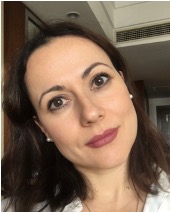 IT Program Manager (f/m/d)
IT Program Manager (f/m/d)
Location: Villach, AT, 9500
Together we move the Atoms that move the World:
Imagine working on the front lines of innovation! As one of the semiconductor industry’s
leading suppliers of wafer fabrication equipment and services, our technology depends on
finding and hiring the best and the brightest employees. We know that our dynamic, global
team of exceptional employees is essential to our continued growth.
Lam Research – where successful people want to work:
We are a company comprised of people who work hard, deliver outstanding results and
maintain a sense of humor during even the most challenging times. This is truly a rare
opportunity. Lam Research is a market leader where our core values are not just words on the
back of your badge. Given the criticality of this role to Lam Research’s success, this philosophy
starts with you.
Job Responsibilities
As a Program Manager you will build strong relationships with our stakeholders to
understand how they function and what their current and future technical requirements are.
Equipped with this knowledge, you will work closely with our technical teams to translate
those requirements into technical solutions and organize the execution of work to support
these solutions.
Roles and Responsibilities
• Deliver results on moderately-complex medium to large scale projects involving teams
across the corporation cross functional
• Work with stakeholders to define and document business requirements. Coordinate with
technical IT teams to create responses to the business requirements and drive cross-functional
specifications
• Take ownership of the implementation of IT related services including their
operationalization and handover to daily business
• Ensure successful implementation of projects leveraging Lam’s PMM methodology with
involvement of network, server, or software implementation and upgrades, PC deployment
and the like
• Present status to leadership and project stakeholders
• Drive continuous improvement
• Identify and understand dependencies, risks, and issues between technical IT related
projects within a global portfolio
• Manage scope, resources, risks and issues, and timelines for projects
• Facilitate change management activities with cross-functional team members and
stakeholders to ensure adoption of process improvement solutions
• Apply ITSM best practice methodologies to ensure governance and complianc
Minimum Qualification
Bachelor’s Degree required (IT related)
Preferred Qualification
* A minimum of 2 years’ experience working in the IT infrastructure
* Strong understanding of IT infrastructure technologies and concepts
* Knowledge and understanding of Microsoft product portfolio, especially Azure, O365
* Knowledge and understanding of networking, server, storage, backup solutions
* Knowledge and understanding of cybersecurity architecture and concepts
* Ability to manage multiple projects simultaneously
* Ability to interact effectively with all levels of the organization
* Ability to facilitate issues and resolve conflict as appropriate
* Ability to understand and translate projects that have highly technical functions
* Project, process and risk management experience
* Strong communication skills
* Self-starter who can identify and solve problems
* Ability to adapt quickly and be effective in new situations in a highly dynamic
environment
* Ability to effectively and quickly build relationships and establish trust, respect,
competence and confidence
* Possess passion, energy, enthusiasm to drive results; highly action oriented
* Knowledge on SaaS Infrastructure and/or data migration projects is a plus
Compensation:
This position is subject to the AUSTRIAN Collective Bargaining Agreement for employees
in the Metal Technology Industries in occupation group G. The minimum annual salary for
the position (m/f/d) is 47.463,64 EUR gross based on a full-time employment. A higher
payment is negotiable depending on expertise and skills.
Villach – a great place to live and work
Follow the link www.welcome2villach.at and you will find on the spot the most important
information about living, working and studying in and around Villach/Austria.
More About Us ….
Our work is everywhere you look – even if you can’t actually see it. Lam Research goes
deeper than software or chips to the heart of the process that enables chip creation. So if you
want to help power the components that empower everything, join us.
All qualified applicants will receive consideration for employment without regard to race, sex, color, religion, sexual orientation, gender identity, national origin, protected veteran status, or on the basis of disability.
Apply here…







 Bio: Laura Toni received the M.S. and Ph.D. degrees, both in electrical engineering, from the University of Bologna, Bologna, Italy, in 2005 and 2009, respectively. In 2007, she was a Visiting Scholar at the University of California at San Diego (UCSD), San Diego, CA, USA, and since 2009, she has been a frequent visitor to the UCSD, working on media coding and streaming technologies. Between 2009 and 2011, she was with the Tele-Robotics and Application Department, Italian Institute of Technology, investigating wireless sensor networks for robotics applications. In 2012, she was a Postdoctoral Fellow at UCSD, and between 2013 and 2016, she was a Postdoctoral Fellow in the Signal Processing Laboratory (LTS4) at École Polytechnique Fédérale de Lausanne, Lausanne, Switzerland. Since July 2016, she has been a Lecturer in the Electronic and Electrical Engineering Department, University College London (UCL), U.K. Her research mainly involves interactive multimedia systems, decision-making strategies under uncertainty, large-scale signal processing, and communications. She received the UCL Future Leadership Award in 2016, the ACM Best 10% Paper Award in 2013, and the IEEE/IFIP Best Paper Award in 2012.
Bio: Laura Toni received the M.S. and Ph.D. degrees, both in electrical engineering, from the University of Bologna, Bologna, Italy, in 2005 and 2009, respectively. In 2007, she was a Visiting Scholar at the University of California at San Diego (UCSD), San Diego, CA, USA, and since 2009, she has been a frequent visitor to the UCSD, working on media coding and streaming technologies. Between 2009 and 2011, she was with the Tele-Robotics and Application Department, Italian Institute of Technology, investigating wireless sensor networks for robotics applications. In 2012, she was a Postdoctoral Fellow at UCSD, and between 2013 and 2016, she was a Postdoctoral Fellow in the Signal Processing Laboratory (LTS4) at École Polytechnique Fédérale de Lausanne, Lausanne, Switzerland. Since July 2016, she has been a Lecturer in the Electronic and Electrical Engineering Department, University College London (UCL), U.K. Her research mainly involves interactive multimedia systems, decision-making strategies under uncertainty, large-scale signal processing, and communications. She received the UCL Future Leadership Award in 2016, the ACM Best 10% Paper Award in 2013, and the IEEE/IFIP Best Paper Award in 2012. Bio: Lucia D’Acunto received her PhD in 2012 from Delft University of Technology, the Netherlands, with a thesis on video streaming over peer-to-peer networks. She now works as a senior research scientist at TNO, focusing on video distribution and on the impact of future internet architectures (e.g. ICN, SDN and 5G) on it. She has led and is leading various European research projects on these topics, most notably the open call projects from the European Projects TRIANGLE, 5GINFIRE and FLAME. Since 2016, Lucia is an active participant and contributor to the 3GPP SA4 group, which focusses on mobile and 5G standardization for media applications. Lucia also serves in the organizing committees of several international conferences, usually in the roles of program chair or demo chair, and in the program committees. Lucia also regularly advises European operators on network and TV technologies and contributes to 5GPPP and NEM visions on the 5G Media Vertical and pilots. Lucia has published her research in several papers and journals and holds more than 15 patent applications.
Bio: Lucia D’Acunto received her PhD in 2012 from Delft University of Technology, the Netherlands, with a thesis on video streaming over peer-to-peer networks. She now works as a senior research scientist at TNO, focusing on video distribution and on the impact of future internet architectures (e.g. ICN, SDN and 5G) on it. She has led and is leading various European research projects on these topics, most notably the open call projects from the European Projects TRIANGLE, 5GINFIRE and FLAME. Since 2016, Lucia is an active participant and contributor to the 3GPP SA4 group, which focusses on mobile and 5G standardization for media applications. Lucia also serves in the organizing committees of several international conferences, usually in the roles of program chair or demo chair, and in the program committees. Lucia also regularly advises European operators on network and TV technologies and contributes to 5GPPP and NEM visions on the 5G Media Vertical and pilots. Lucia has published her research in several papers and journals and holds more than 15 patent applications.